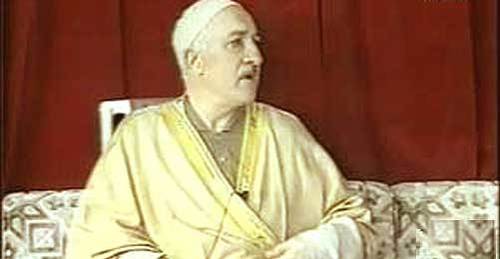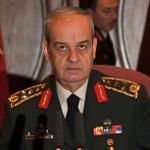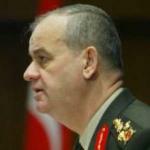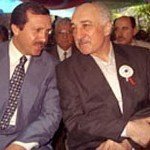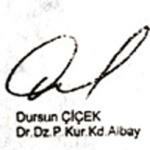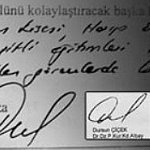Hakan Tahmaz of the Birgün newspaper spoke to bianet's coordinator Ertuğrul Kürkçü about the allegations of a military plan to defamate the ruling Justice and Development Party (AKP) and the religious Gülen movement led by Fethullah Gülen.
Below is a shortened translation of the interview.
How do you evaluate the discussions on the document entitled "Action Plan for a Struggle against Reactionary Forces" alleged to have targeted the AKP and the Fethullah Gülen community?
This is actually just one of the forms which the longstanding tension has taken. There has not been a sudden emergence of conflict because this document was published or appeared.
What conflict is this?
The struggle for power between different hegemonies. Will the status quo be constructed along authoritarian/nationalist lines or conservative/liberal lines? The disagreement between capitalists and those in power turns around this question. You could describe the discussion starting with the "Plan to Struggle against Reactionary Forces" as a reflection of or a new stage in this tension. What has not happened is this: Because the Taraf newspaper published a document, Turkey is experiencing tensions. Rather, because tension existed previously and emerged in different ways, one of the sides is joining the discussion via the Taraf newspaper.
Is this process, which began with Ergenekon, a struggle against the influence of the military on civilian politics and on shaping society?
I agree that this process is a continuation of Ergenekon, but I do not see Ergenekon as a central state organisation. Ergenekon is an eccentric organisation. It has been pushed out of the central state apparatus, but it is an opportunist organisation which wants to regain its old position within the state by creating confusion. Because it can no longer make use of all of the state power, it makes mistakes continuously. It is also trying to progress by clashing with the armed forces. I believe that the document may not be official, but that it is real. I think that it does not have the approval or consent of the General Staff. It was a bottom-up attempt at convincing the General Staff to join the struggle. There are extensions not only within the armed forces, but also within bureaucracy, the media, and even the AKP. I don't think the document is faked, I mean, I don't believe the police prepared and planted it.
What makes you think that?
There were previous reports and documents, such as "Lahika" (an alleged plan by the army to interfere in society) and a report categorising newspapers according to their leanings, which show a continuity and similarity. They match the alleged coup diaries, the diagrams of General Eruygur, and the labelling of high society allegedly prepared by the ground forces. However, it was prepared hastily and within a short time. It was a step into the quagmire by the Ergenekon organisation trying to resist oblivion.
How do you explain the fact that the General Staff keeps protecting information or such projects which were prepared without its approval?
This is just like a political party showing a united front to the outside and trying to solve problems and crises internally. The General Staff is at the same time considering this a conspiracy against itself, but as soon as it admits this, it will weaken and lose credibility. As far as I can see, the General Staff is trying to control the fire by destroying part of Ergenkon, compromising with others and rendering others ineffective.
[...]
The military prosecutor ha met with the prosecutors of the Ergenekon case, the Prime Minister and the Chief of General Staff; it also seems as if all the parties in parliament have the same attitude towards the document. Following the meetings, it seemed as if some people, including the Prime Minister, stood back a bit. Has there been a compromise?
In fact, there have been compromises between the government and the higher levels of the army since May 2007. They started during the time of (Chief of General Staff) Yaşar Büyükanıt. The famous meeting in Dolmabahçe Palace, the content of which people are now demanding an explanation about, affected a conciliation. Without a doubt, both sides have not been absolutely faithful to the agreement. Everyone is moving according to their own advantanges, but instead of clashes there are now compromises.
What is the compromise between government and army based on?
I think it is based on this: Everyone will carry out their real jobs, so that the army will not interfere with politics and the government, while the government will meet the conditions of the army in regards to the Kurdish question and respect its sensitivities in state-religious relations. However, the way in which the government dealt with the "Plan to struggle against reactionary forces" was strange.
What was strange about it?
The relevant document was in the hands of the Ergenekon prosecutors anyway, it was part of the evidence in the Ergenekon investigation. The Taraf newspaper then managed to get hold of this document in some way, and it was discussed in public and in the media. As a result, the AKP and the General Staff each went to their own prosecution and the judiciary was asked to investigate. But it was being investigated already anyway.
[...]
Thus, the AKP and the Fethullah Gülen movement have gained in legitimacy. With this discussion, we have been invited to consider the Gülen movement as part of democratic political life. Who is Gülen? A former preacher who lives in the USA and cannot come to Turkey for various reasons, who is trying to create a kind of clerical class which is not part of traditional Islam in Turkey, who has created a community based on religion and who is struggling for dominance in this area. Sometimes he does this within the AKP, and sometimes he clashes with the AKP. But why should we as society vouch for Fethullah Gülen? This community has benefited the most from this discussion. [...] (HT/EK/AG)




